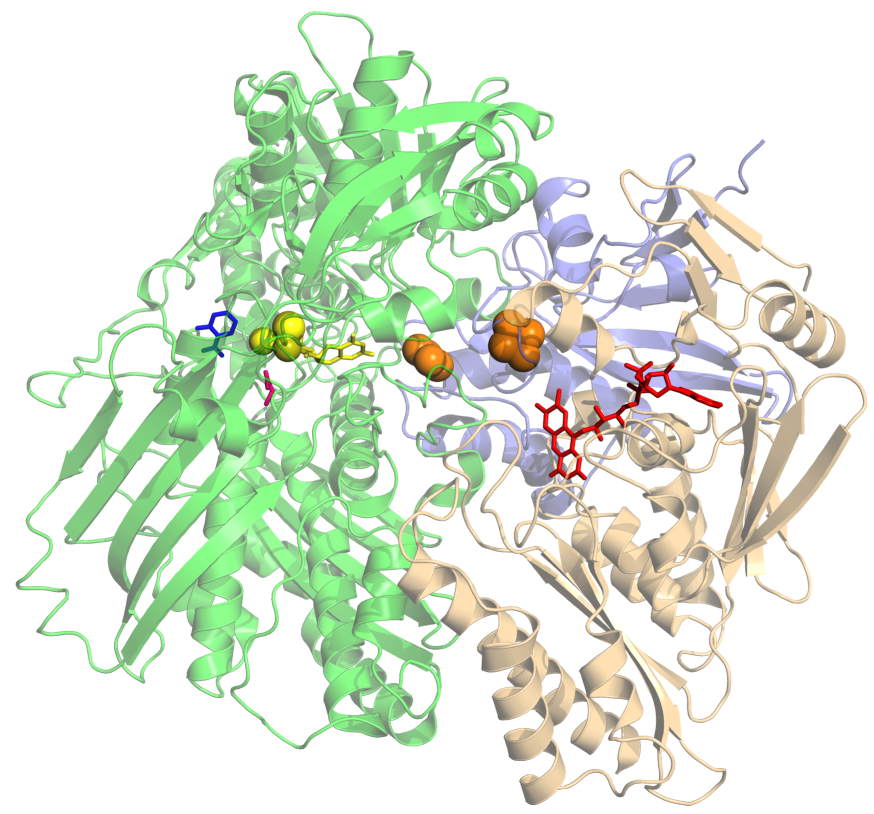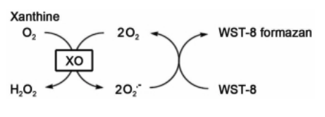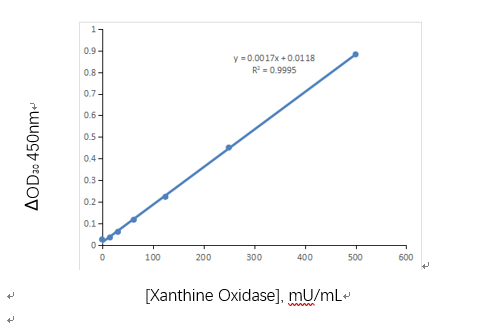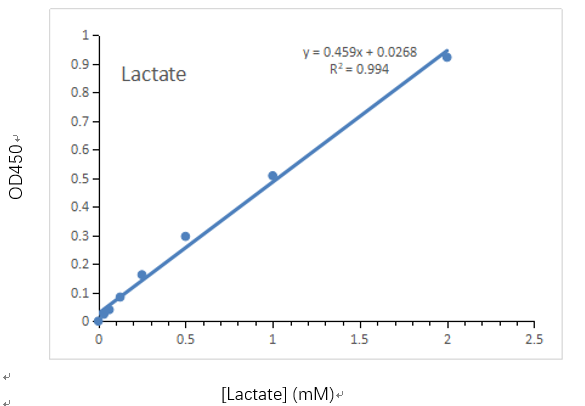Lactate dehydrogenase (LDH) is an oxidoreductase
found in nearly all living cells (animals, plants, and prokaryotes). LDH
catalyzes the conversion of lactate to pyruvate and back, as it converts NAD+
to NADH and back. A dehydrogenase is an enzyme that transfers a hydride from
one molecule to another.
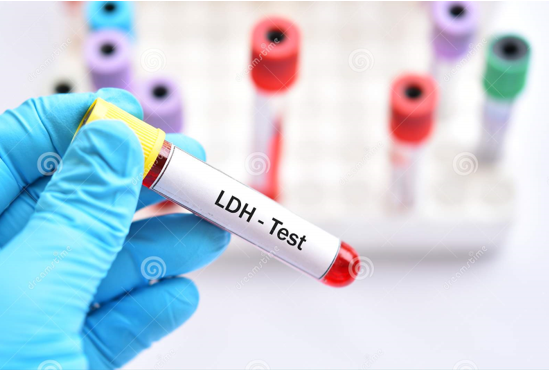
Quantification of Lactate dehydrogenase has clinical
significance because serum levels of certain lactate dehydrogenase isoenzymes
reflect the pathological conditions of specific tissues. When tissue is damaged
by disease, injury, or toxic substances, lactate dehydrogenase is released into
the bloodstream. Because lactate dehydrogenase is a fairly stable enzyme, it
has been widely used to evaluate tissue, cell damage and toxicity.
Abbkine CheKine™ Lactate Dehydrogenase
(LDH) Assay Kit, more simple, convenient and sensitive
Product Name | CAT # |
CheKine™ Lactate Dehydrogenase Assay Kit | KTB1110 |
【Principle】
provides a simple and easy colorimetric assay for measuring LDH in samples. In this colorimetric assay, LDH reduces NAD to NADH, which then interacts with a probe to produce a color (λmax = 450 nm), the LDH present in the sample is proportional to the signal obtained.
【Samples】
serum, plasma, cell culture supernatants, tissue/cell lysates, culture medium, fermentation and other biological fluids.
【Kit components】
Name | Storage temperature | Function |
Assay Buffer | 4ºC | maintain reaction environment |
Lactate | -20ºC | LDH substrate |
NAD | -20ºC | LDH substrate |
WST-8 | -20ºC, protect from light | coloration |
Enhancer | -20ºC, protect from light | electron transport complex |
LDH Standard | -20ºC | Prepare standard curve |
【Procedure】
- Working Reagent Preparation
- Add standard and sample per
well, then add Working Reagent to each well. Tap plate to mix. Immediately read
optical density at 450nm (OD0). - Incubate for 30 min at 37°C in the dark.
Read optical density at 450nm again (OD30).
【Standard Curve】
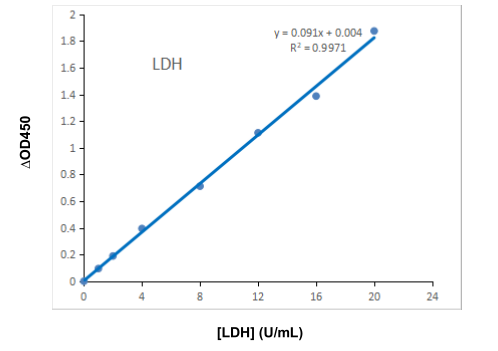
About Abbkine Scientific Co., Ltd.
Abbkine serves global scientists in the
field of proteomics and cytology and is committed to the innovation and
development of various scientific reagents related to proteomics and cytology,
expecting to accelerate the pace of life science research and drug discovery.
Proteomics products cover the preparation of samples (protein extraction,
purification, coupling), protein quantification, antibodies and kits for
protein detection. Cytology products involve cytokines (cell culture), cell
status detection, cell staining, organelle extraction, cell metabolism and
cytopathology reagents (kits). Abbkine relies on the product portfolio and
unique marketing support as the main market strategy and product innovation
mode, with ultimate aim to facilitate your research career.
